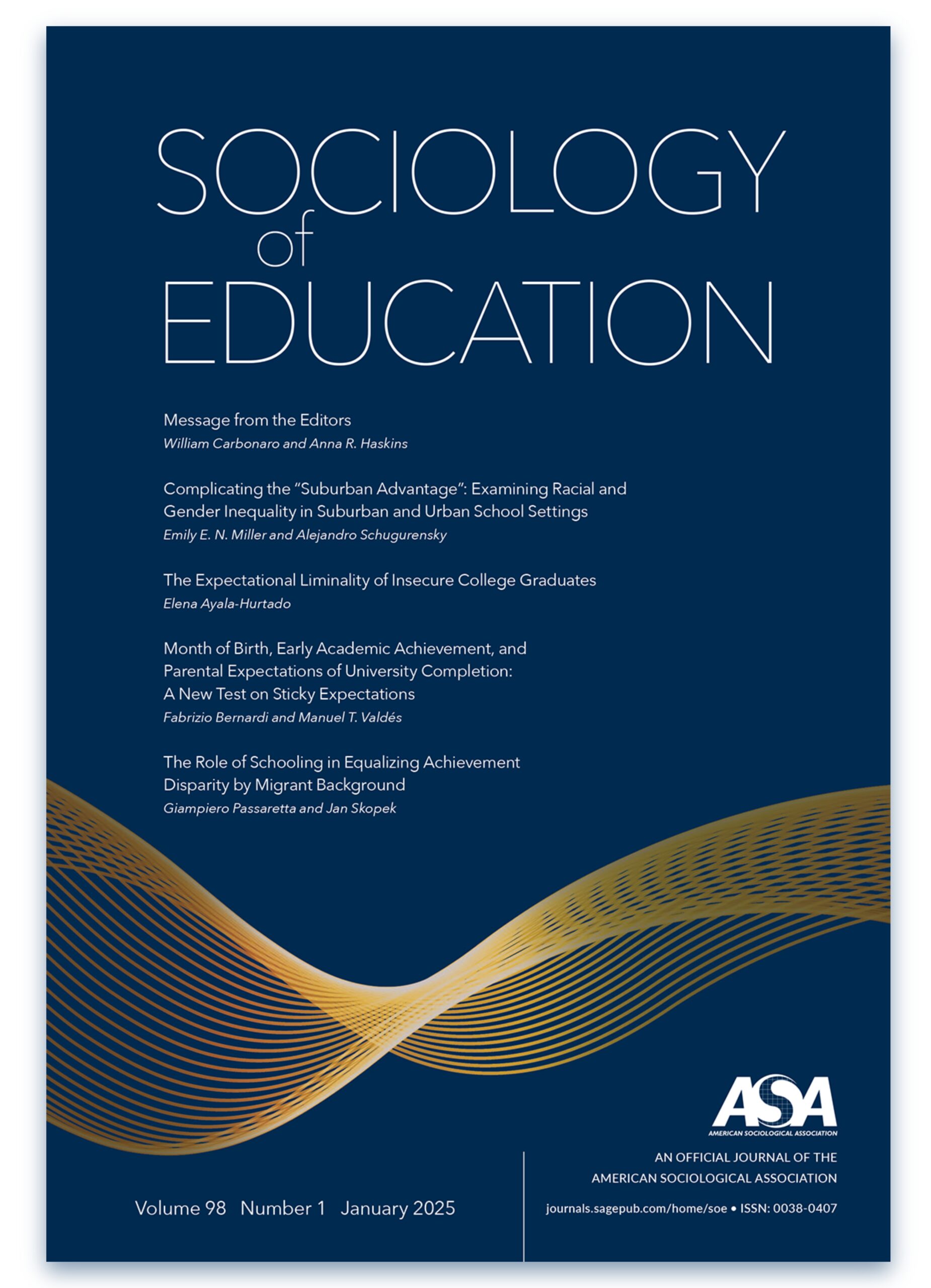
Month of Birth, Early Academic Achievement, and Parental Expectations of University Completion: A New Test on Sticky Expectations
Previous studies have shown that educational expectations of individuals with high socioeconomic status (SES) are relatively unaffected by low academic performance, a phenomenon called “sticky expectations.” However, this result might be biased by endogeneity and reverse causality between academic achievement and educational expectations. Using data from the Trends in International Mathematics and Science Study from 11 countries with a strict school-entry rule and building on the well-established finding that children born in the months before the school-entry cutoff underperform at school, we use birth month as an instrument to identify the causal effect of early academic achievement on parents’ expectations of university completion by parental education. Our findings based on the instrumental variable (IV) regression show that the moderation of social origin in the relationship between children’s performance and parental expectations is moderately overestimated in cross-sectional data. Nonetheless, the stickiness of high-SES parental expectations is confirmed in the IV model, proving that parental expectations are less affected by children’s early achievement when the parents are highly educated.
Sticky Expectations Confirmed, but Overestimated: Using an IV design based on birth month, the study shows that high-SES parents’ educational expectations are less responsive to children’s academic achievement—but previous estimates overstated this effect due to endogeneity and reverse causality biases.

Low-SES Parents Respond More to Achievement: After addressing endogeneity, academic achievement strongly influences parental expectations—but mainly for low-SES families. High-SES parents maintain ambitious expectations regardless of poor performance, reinforcing educational inequality through compensatory advantage mechanisms in early schooling.

Broader Implications and Methodological Contribution: The IV strategy highlights parental expectations as a channel linking school-entry age to attainment and offers a model for studying causality in education research. The approach can be extended to explore teacher bias or educational transitions.

